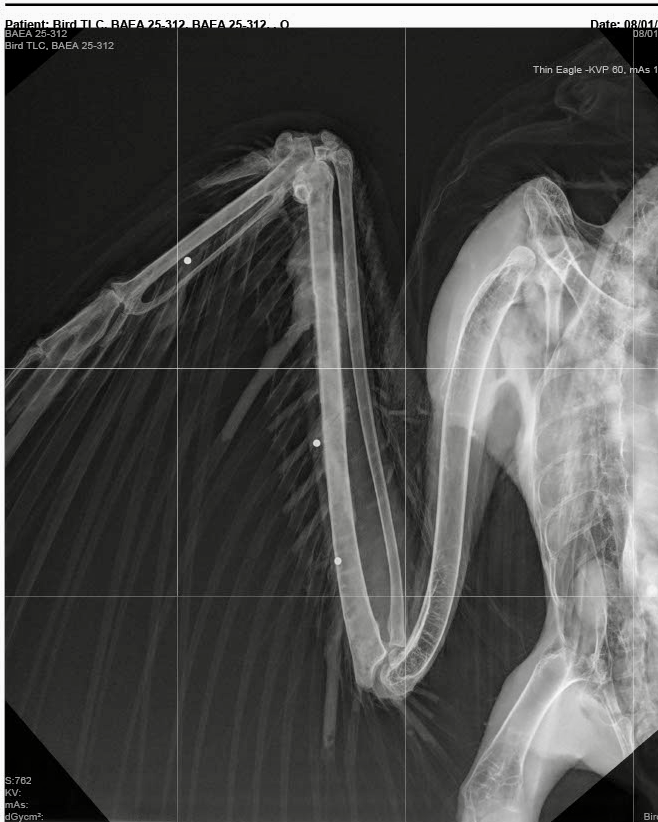In the past few weeks, we have cared for multiple patients whose injuries demonstrate why we believe rehabilitation is an act of responsible stewardship.
Most of the birds we care for have been injured due to human activities. Rehabilitation gives us the chance to undo the harm done to these birds and, hopefully, give them a second chance at life in the wild.
Two birds, a gull and a mallard, were affected by fishing line and hooks that were not properly disposed of.
This mallard suffered from a fishhook embedded in her mouth. Fortunately, we were able to remove it and send her back to the wild.
A young gull found himself in a dire predicament when the line from the fishhook embedded in his mouth wrapped around his beak and his legs. We untangled the line, removed the fishhook, and gave him his second chance at life in the wild.
Because we often see birds tangled in fishing line, we partner with the U.S. Fish and Wildlife Service and Anchorage Waterways Council on Loons, Lines, and Lead (LLL) to educate our community about the dangers of improperly discarded fishing line and lead tackle. You will find a map on the LLL webpage of the fishing line collection bins maintained by Anchorage Waterways Council.
While causing harm to wild birds is generally unintentional, sometimes it is not - as you can see in the radiographs of two of our patients who were shot. We are guardedly optimistic that their injuries will heal and they can return to the wild. Sadly, this was not the case with the Great Horned Owl, whose wing was damaged so badly that he could no longer fly.
Every time we release a bird back to the wild who has been harmed by humans, by human activity, or by increasing urbanization, we are reminded why rehabilitation is responsible stewardship and that it matters - especially to that bird who has a second chance.
Bird TLC is here to help if you have found an injured or orphaned bird.
Your donation will help injured wild birds, like those in this article, return to the wild.




